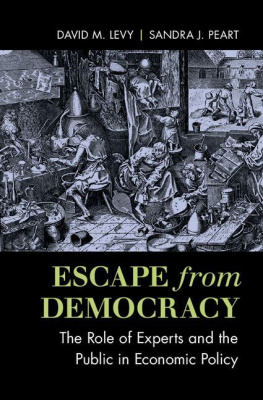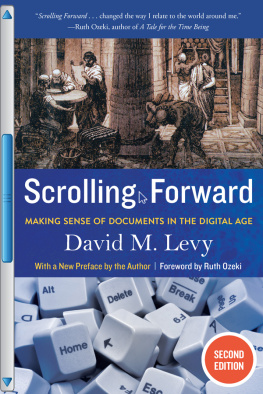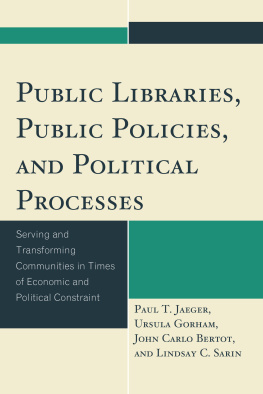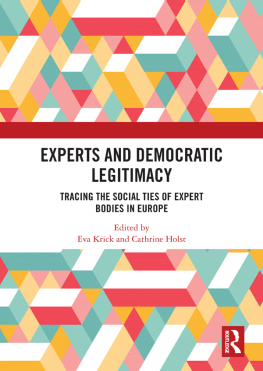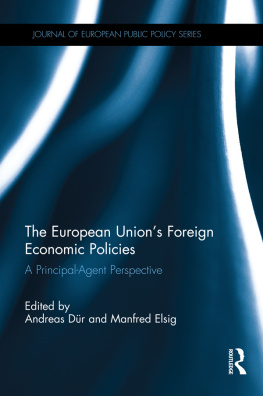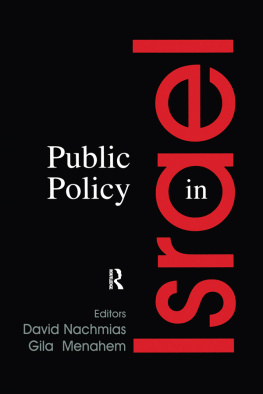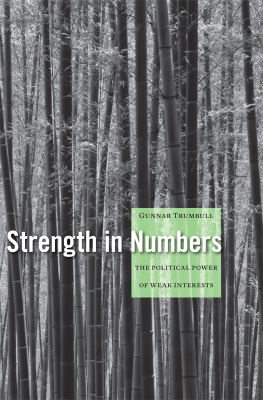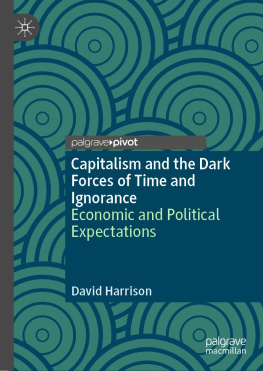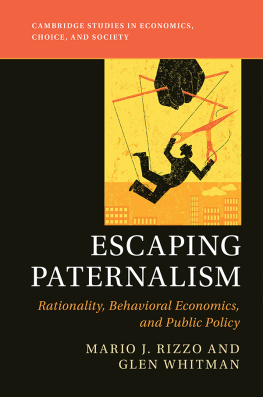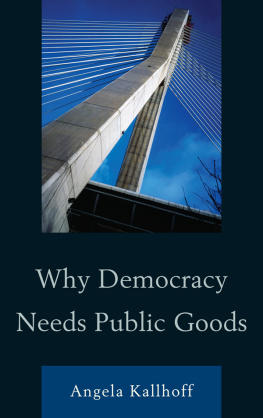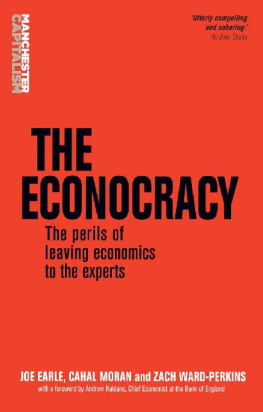Escape from Democracy
The orthodox view of economic policy holds that public deliberation sets the goals or ends, and then experts select the means to implement these goals. This assumes that experts are no more than trustworthy servants of the public interest. David M. Levy and Sandra J. Peart examine the historical record to consider cases in which experts were trusted, with disastrous results, such as in the field of eugenics, the regulatory use of security ratings, and central economic planning. This history suggests that experts have not only the public interest but also their own interests to consider. The authors then recover and extend an alternative view of economic policy that subjects experts proposals to further discussion, resulting in transparency and ensuring that the public obtains the best insights of experts in economics while avoiding pitfalls such as expert bias.
David M. Levy is Professor of Economics at George Mason University. He has worked with Sandra J. Peart at the University of Richmond for fifteen years, and both have codirected the Summer Institute for the History of Economics. He is a distinguished fellow of the History of Economics Society.
Sandra J. Peart is Dean and Professor in the University of Richmonds Jepson School of Leadership Studies. She is a former president of the History of Economics Society and President of the International Adam Smith Society.
Escape from Democracy
The Role of Experts and the Public in Economic Policy
David M. Levy
George Mason University
Sandra J. Peart
University of Richmond

One Liberty Plaza, New York, NY 10006 USA
Cambridge University Press is part of the University of Cambridge.
It furthers the Universitys mission by disseminating knowledge in the pursuit of education, learning, and research at the highest international levels of excellence.
www.cambridge.org
Information on this title: www.cambridge.org/9781316507131
David M. Levy and Sandra J. Peart 2017
This publication is in copyright. Subject to statutory exception and to the provisions of relevant collective licensing agreements, no reproduction of any part may take place without the written permission of Cambridge University Press.
First published 2017
Printed in the United States of America by Sheridan Books
A catalogue record for this publication is available from the British Library .
Library of Congress Cataloging-in-Publication Data
Names: Levy, David M., author. | Peart, Sandra, author.
Title: Escape from democracy: the role of experts and the public in economic policy /
David M. Levy, Sandra J. Peart.
Description: New York, NY: Cambridge University Press, 2017. |
Includes bibliographical references and index.
Identifiers: LCCN 2016024201| ISBN 9781107142398 (hardback) |
ISBN 9781316507131 (paperback)
Subjects: LCSH: Economics. | Economics Sociological aspects. |
Economic policy. | Expertise. | Citizen participation. | Democracy.
Classification: LCC HB71.L544 2016 | DDC 330dc23
LC record available at https://lccn.loc.gov/2016024201
ISBN 978-1-107-14239-8 Hardback
ISBN 978-1-316-50713-1 Paperback
Cambridge University Press has no responsibility for the persistence or accuracy of URLs for external or third-party Internet Web sites referred to in this publication and does not guarantee that any content on such Web sites is, or will remain, accurate or appropriate.
Democratic action is hard . It means government by discussion, and the organization of discussion itself, as I said before, involves the main problems. Not much intercommunication is even theoretically possible. As the world is built, the cards are heavily stacked in favor of centralization. Even in one direction, communication is bad enough; ... as to inter-communication even with two persons there is an insoluble problem of dividing the time for both between speaking and listening; ... with larger numbers, the limitation increases rapidly.
Frank Knight (
Contents
Figures
Tables
Acknowledgments
This book has been a long time in coming to fruition and consequently we have many individuals and organizations to acknowledge here. We began thinking about experts as we presented our research on eugenics at the History of Economics Society, the American Economic Association, and the Summer Institute for the Preservation of the History of Economics. Colleagues in those venues, including Dan Hammond, Eric Schliesser, Andrew Farrant, Ed McPhail, Maria Paganelli, Niccola Tynan, Tim Leonard, Charles McCann, and the late Laurence Moss were most helpful and encouraging. The Summer Institute in those years received financial support from the Earhart Foundation.
Subsequent versions of some chapters were presented at the History of Political Economy Workshop at Duke University, the American Economic Association, the History of Economics Society, and the Joint Statistical Meetings. We received encouragement and helpful comments from M. Ali Khan, Barkley Rosser, George DeMartino, Craufurd Goodwin, Kevin Hoover, Bruce Caldwell, and Roy Weintraub. Colleagues, including Tyler Cowen, Peter Boettke, Alex Tabarrok, Deirdre McCloskey, Roger Koppl, Arye Hillman, Ross Emmett, Steven Durlauf, and Virgil Storr have been helpful along the way. To help assist with our thinking, we organized a Liberty Fund colloquium on experts in 2009; the colloquium was most useful to our thinking about the discussion tradition. Emily Chamlee-Wright encouraged us to write a chapter for her edited volume on discussion: that chapter forms the basis for . Portions of other chapters have appeared in print and are reprinted with permission here.
We are grateful for permission to print previously unpublished writings. We thank Jo Ann Burgess for permission to publish the correspondence of James Buchanan. We thank Laura Hicks of the Foundation for Economic Education (https://fee.org/) for permission to publish Orval Wattss letter to Rose Wilder Lane. We thank Noel L. Silverman, on behalf of the Little House Heritage Trust, for permission to publish Rose Wilder Lanes letter to Orval Watts. We thank Leah Donnelly of the Special Collections Division of George Mason University Library for permission to publish manuscripts in the Clark E. Warburton Papers. We thank James Poterba, on behalf of the National Bureau of Economic Research, for permission to publish the correspondence among the participants in the NBER corporate bond study. We thank Manfred Lube, on behalf of the University of Klagenfurt / Karl-Popper-Library, for permission to publish Karl Poppers letter to Gordon Tullock. We thank Ning Wang for permission to quote Ronald Coases unpublished words.
Chapter 2 first appeared in 2015 as On Strongly fortified minds: Self-restraint and cooperation in the discussion tradition, in Liberal Learning and the Art of Self-Governance edited by Emily Chamlee-Wright (pp. 3549). We thank the editor and the publisher, Taylor & Francis, for permission to reprint. An earlier version of Chapter 6 first appeared in the Journal of Economic Behavior & Organization Vol. 78, April 2011 (pp. 110125). We thank the editor, William Neilson, and the publisher, Elsevier, for permission to reprint. An earlier version of Chapter 9 appeared in 2016 in The Oxford Handbook of Professional Economic Ethics , edited by George F. DeMartino and Deirdre N. McCloskey (pp. 635650). We thank the editors and the publisher, Oxford University Press, for permission to reprint. An earlier version of Chapter 10 first appeared in Public Choice as Tullock on motivated inquiry: expert-induced uncertainty disguised as risk Vol. 152, April 2012 (pp.163180). We thank the editor, William Shughart, and the publisher, Springer, for permission to reprint. Chapter 12 first appeared in the Eastern Economic Journal , Vol. 34, Winter 2008, pp. 103114. We thank Nature Publishing Group & Palgrave Macmillan for permission to reprint.
Next page
